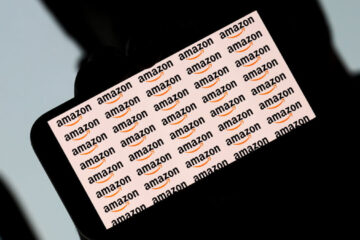Most retailers have at least one thing in common in 2023. They’ve seen competitors go under and they’d really, really like to stay afloat.
The most recent S&P data show 2023 corporate bankruptcies rising at an alarming clip. Data show 236 bankruptcies were recorded through the end of April 2023 (109 had been recorded over the same time period last year). UBS also found in a recent study that bankruptcies worth $10 million or more had a rolling average of about 8 per week.
DON’T MISS: Jamie Dimon Calls 911 on Short Sellers
It’s not surprising, then, that a lot of retailers are pulling as many levers as necessary to stay afloat. One of the most helpful levers is going private.
Typically a company goes private when its shareholders determine that being listed publicly does more harm than good to its brand and/or its value. Being private allows for more, well, privacy; there’s less public and regulatory scrutiny associated with a private company. Regular reporting with the SEC, as with quarterly earnings reports, becomes a thing of the past (at least, the public fanfare associated with such reports mitigates, though most private companies will tell you that they very much still keep tabs on their quarterly performance).
Shutterstock
Going private may also offer a nice padding to some shareholders and upper management, particularly if the company is acquired.
Still going private comes with its drawbacks. Shareholders must say goodbye to their stocks and equity is not available through a brokerage for investors to purchase. There are still plenty of administrative requirements a private company must comply with, and accounting can get complicated.
If, however, you find yourself in a position where going private could actually salvage your business and most stakeholders support the move, it’s typically worth jumping through the hoops and cutting through the red tape to do so.
Vitamin Shoppe Is Going Private
This is exactly what Franchise Group, the parent company of Vitamin Shoppe, Pet Supplies Plus, Wag N’ Wash, American Freight, Badcock Home Furniture & More, and Sylvan Learning Center, plans to do. The deal is valued at $2.6 billion and is expected to close in the second half in 2023.
The news comes on the tail of a disappointing Q1 2023 earnings report in which Franchise Group reported $1.1 billion in revenue but a net loss of over $108 million.
CEO Brian Kahn addressed the matter in the earnings call, telling analysts the company had actually received an acquisition offer in late March 2023. After conducting the appropriate due diligence and weighing their best options, the company ultimately decided to move forward with the deal, which includes private equity firms B. Riley Financial and Irradiant Partners.
The partners “agreed to pay $30 per share in cash for all of the public commons shares. The Company anticipates redeeming its outstanding preferred stock in connection with the closing of — continuing to pay the preferred stock dividend through the redemption date,” Kahn said on the call.
The company also withdrew its 2023 forward guidance and suspended its common stock dividend, adding, “our credit agreements would not permit the dividend to be paid,” given that its leverage ratio did not meet the requirements to continue payment.
Together, Kahn, B. Riley and Irradiant will acquire 64% of issued and outstanding common stock. At the close of 2022, Kahn and Vintage Capital Management and its affiliates owned about 40% of the common stock.
Franchise Group runs about 3,000 stores and employs roughly 8,500 full-time and 5,600 part-time workers.
Kahn called the current climate a “challenging business environment,” but claimed the deal offered shareholders and customers an upside, “with high-quality franchisees, operators and financial institutions.”


